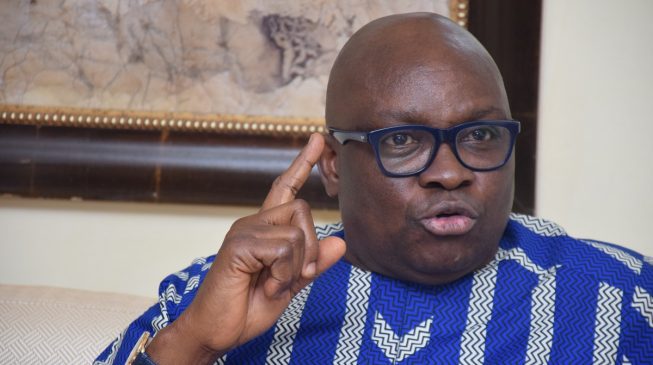By Aisha Rufai Jega
Former Ekiti State Governor, Ayodele Fayose, has expressed concerns over the Supreme Court’s verdict granting financial autonomy to the 744 Local Government Areas (LGAs) in Nigeria.
On Thursday, the apex court in the landmark judgement granted financial autonomy to the third tier of government, ordering the Federal Government to pay the 20.60% monthly allocation of the 774 LGs in the country directly to their exclusive accounts and not to accounts controlled by governors
It also barred governors from dissolving democratically elected local government councils.
Speaking during an interview on Channels Television, Fayose said even though he does not subscribe to state governors taking funds meant for local governments, it is difficult to separate the two tiers of government.
- LG Autonomy: Taraba Gov sets up committee to implement S’Court ruling
- ‘Stop Demarketing Peter Obi, Labour Party’, LP Directorate Tells NLC Transition Committee
Fayose, who described himself as “a politician and an elder statesman,” and not a lawyer emphasized the interconnections between the state and local governments, citing their connection as that of a mother and child.
“You cannot take the baby from the mother,” he said, highlighting the dependence of local governments on state governments.
He further explained, “There is nobody that can become a council chairman without a governor. Anybody telling you otherwise is wasting their time.”
While pointing out that state Houses of Assembly oversee the activities of local governments, he said: “Let me quickly remind you that the house of assembly of every state controls the activities and checks the activities of the local government.”
According to him, during his tenure as governor, he received funds from the federal government, which were managed by local government officials, workers, and pensioners.
He said: “While I was governor, I had the privilege of receiving money from Abuja. When you receive money from the account, some people manage the account. They are not politicians or the council chairman.
“There is only one representative of the governor, which is the local government commissioner. All others are local government officials, workers, and pensioners of the council.
“But when you now come and say we are giving power to the local government. What power are you giving to them? No power.”
The ex-governor also criticized the lack of effective administrative performance in local governments, citing the absence of staff from their offices.

 Join Daily Trust WhatsApp Community For Quick Access To News and Happenings Around You.
Join Daily Trust WhatsApp Community For Quick Access To News and Happenings Around You.


